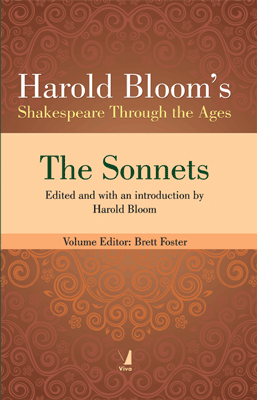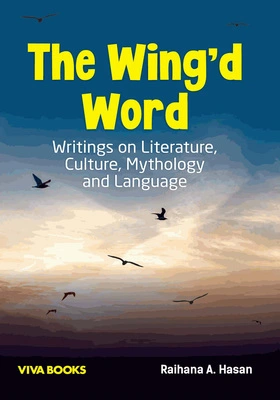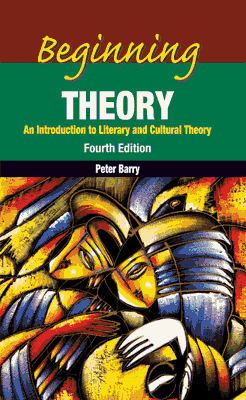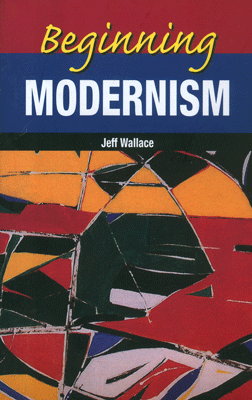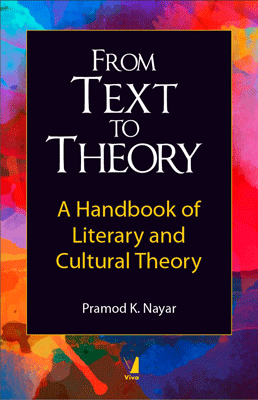The Sonnets
The Sonnets
Edited and with an introduction by Harold Bloom
₹535.50 ₹595.00 Save: ₹59.50 (10%)
Go to cart-
Out of Stock
ISBN: 9788130933948
Bind: Paperback
Year: 2016
Pages: 404
Size: 152 x 228 mm
Publisher: Facts On File Inc.
Published in India by: Viva Books
Exclusive Distributors: Viva Books
Sales Territory: India, Nepal, Pakistan, Bangladesh, Sri Lanka
Description:
Shakespeare's 154 sonnets are considered among the finest short poems in the English language. This invaluable new study guide contains a selection of the best criticism through the centuries on Shakespeare's sonnets, including commentaries by such important critics as John Keats, Samuel Taylor Coleridge, William Empson, Helen Vendler, and many others. Students will also benefit from the additional features in this volume, including an introduction by Harold Bloom, a biography of Shakespeare, an accessible summary of the narrative presented by the sonnets, an analysis of key sonnets, a list of the four main personas depicted in the sonnets, essays discussing the main currents of criticism on the sonnets in each century since Shakespeare's time, and more.
Each volume in the Bloom's Shakespeare Through the Ages contains the finest criticism on a particular work from the Bard's oeuvre, selected under the guidance of renowned Shakespearean scholar, Harold Bloom Intended for students just beginning their exploration of Shakespeare, these invaluable study guides present the best of Shakespeare criticism, from the 17th century to today In the process, each volume also charts the flow over time of critical discussion of a particular work.
This essential set is unique not only in the range of commentary it provides on each of Shakespeare's greatest works, but also in its emphasis on the greatest critics in our literary tradition — including such critics as John Dryden in the 17th century, Samuel Johnson in the 18th century, William Hazlitt and Samuel Taylor Coleridge in the 19th century, A.C. Bradley and William Empson in the 20th century, and many more Some of the pieces included are full—length essays; others are excerpts designed to present a key point.
Target Audience:
Students and academics of English literature.
Contents:
Series Introduction • Introduction by Harold Bloom • Biography of William Shakespeare • Summary of The Sonnets
List of Personas in The Sonnets
The Speaker • The Young Man • The Dark Lady • The Rival Poet
Three Key Poems from The Sonnets
Sonnet 3 • Sonnet 64” Sonnet 116.
CRITICISM THROUGH THE AGES
The Sonnets in the Sixteenth and Seventeenth Centuries
1598—Francis Meres. From Palladis Tamia, or Wit's Treasury • 1599—William Shakespeare. Versions of sonnets 138 and 144 from William Jaggard's anthology The Passionate Pilgrim • 1609—Thomas Thorpe. Dedication from Shake-speares Sonnets • 1640—John Benson. “Epistle to the Reader,” from Poems: Written bv Wil. Shake-speare. Gent
The Sonnets in the Eighteenth Century
1710—Charles Gildon. From “An Essay on the Rise and Progress of the Stage in Greece, Rome, and England” and “Remarks on the Poems of Shakespear,” from Poems. “The Works of Mr. William Shakespear, vol. 7 • 1711—Bernard Lintott, From “Advertisement,” from A Collection of Poems ... by Mr. William Shakespeare • 179G—Edmund Malone. From “Preface” to The Plays and Poems of William Shakespeare in Ten Volumes • 1793—George Steevens. From “Advertisement,” from The Plays of William Shakespeare in Fifteen Volumes.....,4th edition
The Sonnets in the Nineteenth Century
1803—Samuel Taylor Coleridge. From Marginalia • 1817—John Keats. From Letters • 1821—James Boswell. “Preliminary Remarks,” from “The Plays and Poems of William Shakespeare, vol. 20 • 1827—William Wordsworth. “Scorn not the Sonnet” • 1833—Samuel Taylor Coleridge. From Table Talk • 1842—Henry Hallam. From Introduction to the Literature of Europe in the Fifteenth, Sixteenth, and Seventeenth Centuries • 1872—Edward Dowden. From Shakspere: A Critical Study of His Mind and Art • 1876—Robert Browning. “House” • 1879—Algernon Charles Swinburne. From A Study of Shakespeare • 1879—Sidney Lanier. From Shakspere and His Forerunners • 1889—0scar Wilde. “The Portrait of Mr. W.H.,” from Blackwood's Magazine • 1899—Samuel Butler. From Shakespeare's Sonnets Reconsidered
The Sonnets in the Twentieth Century
1909—Sir Sidney Lee. “Ovid and Shakespeare's Sonnets,” from Elizabethan and Other Essays • 1910—George Bernard Shaw. From “Preface” to The Dark Lady of the Sonnets • 1926—Robert Graves and Laura Riding. “A Study in Original Punctuation and Spelling,” from A Survey of Modernist Poetry • 1935—William Empson. “They That Have Power,” from Some Versions of Pastoral • 1953—G.K. Hunter. “The Dramatic Technique of Shakespeare's Sonnets,” from Essays in Criticism • 1964—W.G. Ingram and Theodore Redpath. “A Note on the Dedication,” from Shakespeare's Sonnets • 1983—Anne Ferry. From “Shakespeare and Sidney,” from The “Inward” Language: Sonnets of Wyatt, Sidney, Shakespeare, Donne • 1984—Joel Fineman. “Shakespeare's “Perjur”d Eye,— from Representations • 1986—Thomas M. Greene. “Anti-Hermeneutics: The Case of Shakespeare's Sonnet 129,” from The Vulnerable Text: Essays on Renaissance Literature • 1991—Bruce R. Smith. “The Secret Sharer,” from Homosexual Desire in Shakespeare's England: A Cultural Poetics • 1994—Margreta de Grazia. “The Scandal of Shakespeare's Sonnets,” from Shakespeare Survey • 1997—Helen Vendler. From “Introduction” to The Art of Shakespeare's Sonnets • 1998—Jonathan Bate. “Shakespeare's Autobiographical Poems”“ from The Genius of Shakespeare
The Sonnets in the Twenty-first Century: A Brief Overview
2004—Patrick Cheney. ““O, let my books be ... dumb presagers”: poetry and theatre in the Sonnets,” from Shakespeare, National Poet-Playwright
Bibliography • Acknowledgments • Index
About the Series Editor:
Harold Bloom is Sterling Professor of the Humanities at Yale University and the author of more than 30 books, including Shelley's Mythmaking (1959), Blake's Apocalypse (1963), Yeats (1970), The Anxiety of Influence (1973), A Map of Misreading (1975), Kabbalah and Criticism (1975), Agon: Toward a Theory of Revisionism (1982), The American Religion (1992), The Western Canon (1994), Shakespeare: The Invention of the Human (1998), How to Read and Why (2000), Hamlet: Poem Unlimited (2003), Where Shall Wisdom Be Found” (2004), and Jesus and Yahweh: The Names Divine (2005). In 1999, Professor Bloom received the American Academy of Arts and Letters” Gold Medal for Criticism.
